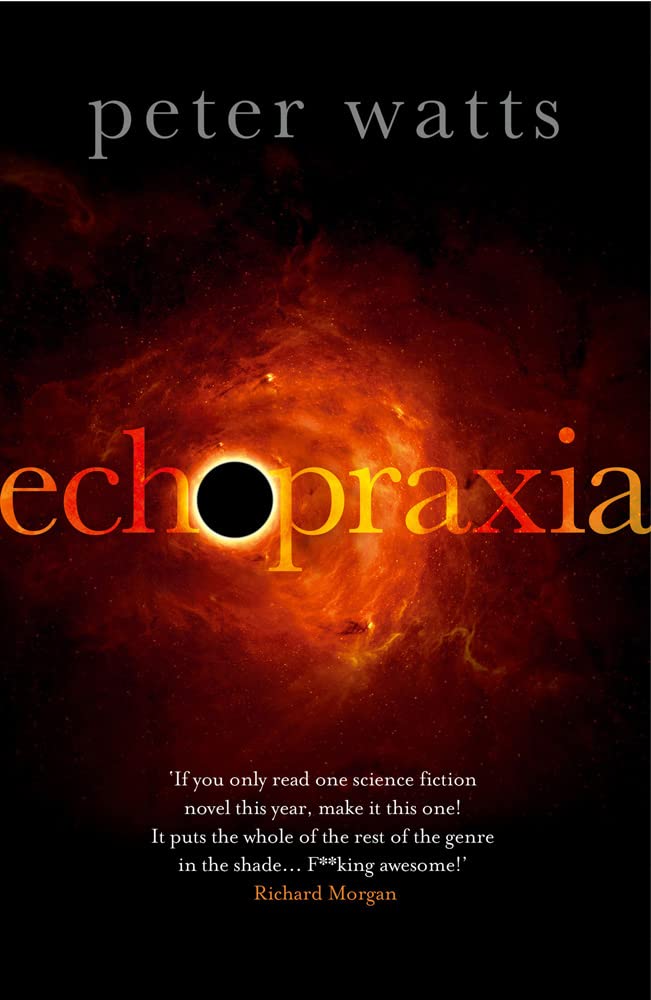Where Blindsight was about consciousness, Echopraxia deals with the questions of God and free will. Hence the name Crown of Thorns, and the title (which refers to a side effect of certain neurological conditions, e.g. schizophrenia, where the victim involuntarily mimics the movements of another person). In reading, you get the sense that Watts is someone who questions relentlessly, and isn’t happy unless he’s really wrangled with whatever’s on his mind.
Hard sci-fi (which I defined in this previous review) might be off-putting to some because of the proliferation of technical detail, but I always enjoy the challenge, and can usually find I can follow a story even if I don’t understand all the science. It helps that Watts is a really terrific writer, able to articulate not just with precision but beauty as well.
The main character, Daniel Brüks, isn’t always the most likeable, with an off-putting tendency to mouth off, but he’s compelling enough to carry the story through. He knows almost nothing about what’s going on, which makes sense from a narrative perspective, but sometimes got frustrating. I thought that one of the other crewmembers, Lianna, might have made a more interesting protagonist, because she has more of a character arc than Brüks, but I wouldn’t say that was a problem with the novel.
As a sequel, Echopraxia didn’t altogether satisfy, because you don’t learn much about the aftermath of the previous novel. However, taken on its own terms, it’s a perfectly good read: smart, gripping, and thought-provoking. It lacks some of the cohesiveness of its predecessor, and some plot beats feel a little like retreads, but overall I enjoyed it a lot. The world Watts has created for these two books is bleak and fascinating, and it was great to see it expanded upon here. Echopraxia can be read as a standalone novel, but I’d recommend reading Blindsight first to make some things clearer. Both are worth it, though, and I’m looking forward to checking out more of Watts’s unique take on sci-fi.
Review by Charlie Alcock

 RSS Feed
RSS Feed
